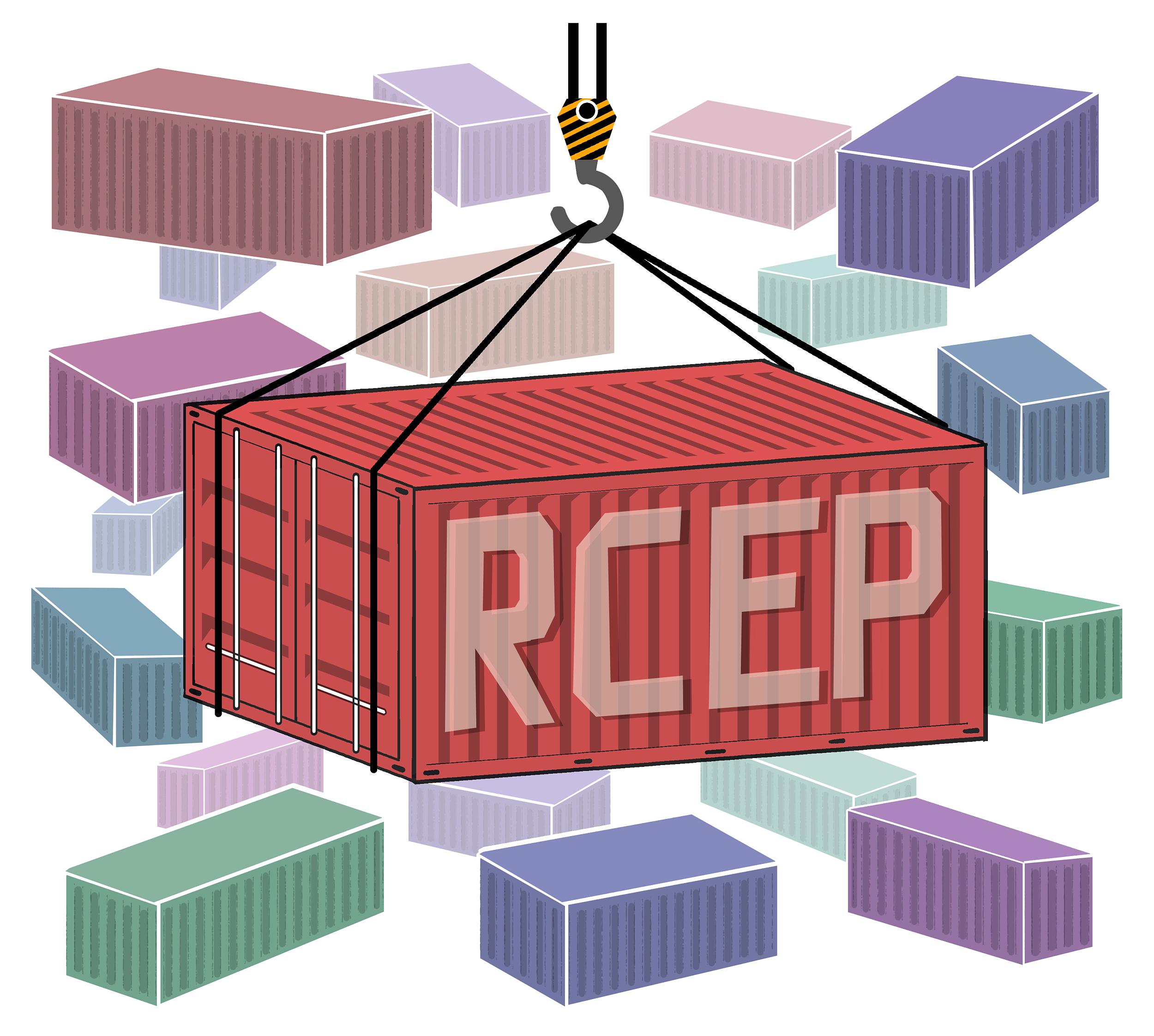How RCEP to Impact Asia-Pacific Region and the World

Regional Comprehensive Economic Partnership is so far the world’s largest regional free trade arrangement. (PHOTO: VCG)
By HAO Nan
The IMF projects a downtick in global economic growth - a mere 2.8 percent for 2023. The Asia-Pacific region, once hailed as the economic dynamo that drove the recovery post-2008, is faring no better. Its growth rate is languishing at around 4 percent for both 2023 and 2022, a significant decrease from 6.5 percent in 2021. The path to global economic recovery, it appears, is far from straightforward.
The transformation, as the recent news suggests, might arise from the Philippines’s ratification of the Regional Comprehensive Economic Partnership (RCEP), prompting the mega-trade arrangement to take full effect for all of its 15 members including China, Japan, Australia, Republic of Korea, and the ten ASEAN nations. As a result, the economic potential of the region might be further tapped. After all, the fully effective agreement is so far the world’s largest regional free trade arrangement, covering about 30 percent of global GDP, nearly a third of the world's population, and some of the most vibrant and innovative economies. As the signatories envisioned, the agreement would make it easier for products and services to flow across borders and hence integrate the regional economies of Asia-Pacific through the reduction or elimination of tariffs, standardized customs procedures, and regulatory convergence.
Nevertheless, the road ahead for RCEP member countries isn't without its bumps. One notable barrier is the underutilization of the RCEP. South Korea's export trade volume using the RCEP stood at a mere 3.3 billion USD last year, only benefitting trade with Japan, China, and Thailand. Astonishingly, Chinese companies apply RCEP's origin rules to just 3.56 percent of their exports and a paltry 1.03 percent of imports. Even Japanese firms, with higher rates, see only around 60 percent of companies utilizing RCEP for trade with China, based on a survey of 97 exporters and 95 importers. Thus, the challenge remains not just to provide the infrastructure for integrated trade, but to ensure the RCEP's full potential is exploited to boost intra-regional commerce.
There are legitimate concerns related to standards and regulations as well. Different countries in the RCEP have diverse regulatory frameworks which present challenges in harmonization. For instance, the variance in labour rights, environmental protections, and intellectual property rights(IPR) standards poses potential complications. Some countries have robust protections while others are still developing their regulatory capacities. This divergence could lead to issues like undercutting standards, where companies might shift operations to countries with looser regulations, undermining fair competition and sustainable development. Furthermore, the lack of a cohesive IPR framework could stifle innovation, as firms may be wary of insufficient protection.
The international political climate also has its play here. Even though the trade-enhancing RCEP with full regional coverage undoubtedly outcompetes the non-trade-fostering Indo-Pacific Economic Framework rolled out by the Biden administration, and the higher-level yet smaller-scaled CPTPP, the RCEP as a trade-facilitating instrument cannot function on its own with some member economies contemplating the decoupling or de-risking from China.
Addressing challenges within the RCEP requires proactive engagement from all member nations. Frequent interactions through RCEP Joint Committees and Ministerial Meetings, and swift establishment of an RCEP secretariat, are crucial for clarifying misconceptions and bolstering political trust. Such consistent efforts would lay the groundwork for enhancing the RCEP's regional utility among businesses, guaranteeing a balanced distribution of benefits, and enforcing safeguards to shield smaller, developing economies from potential adversities.
To glean early benefits and bolster the RCEP, implementation of a robust dispute resolution mechanism is paramount. Alongside this, the agreement necessitates harmonization and elevation of its standards and regulations. Enforcing rigorous labour rights and environmental protections not only fosters fair trade, but also champions sustainable development. A shared framework for IPR would further serve the RCEP's cause by safeguarding innovation and propelling technological progress.
Looking ahead, whether the promising future of the RCEP can be delivered or not would largely rests on its members' ability to traverse the difficulties, harmonizing national interests with regional integration. Amidst our era marked by volatility, uncertainty, complexity, and ambiguity, this evolving partnership invites global attention. As we strive for steadfast economic recovery, there's hope that the RCEP's stride towards economic integration may catalyse a period of prosperity, not just for the region, but also for the world seeking respite in these tumultuous times.
HAO Nan is a Youth Fellow at Centre for International Security and Strategy (CISS), Tsinghua University.







